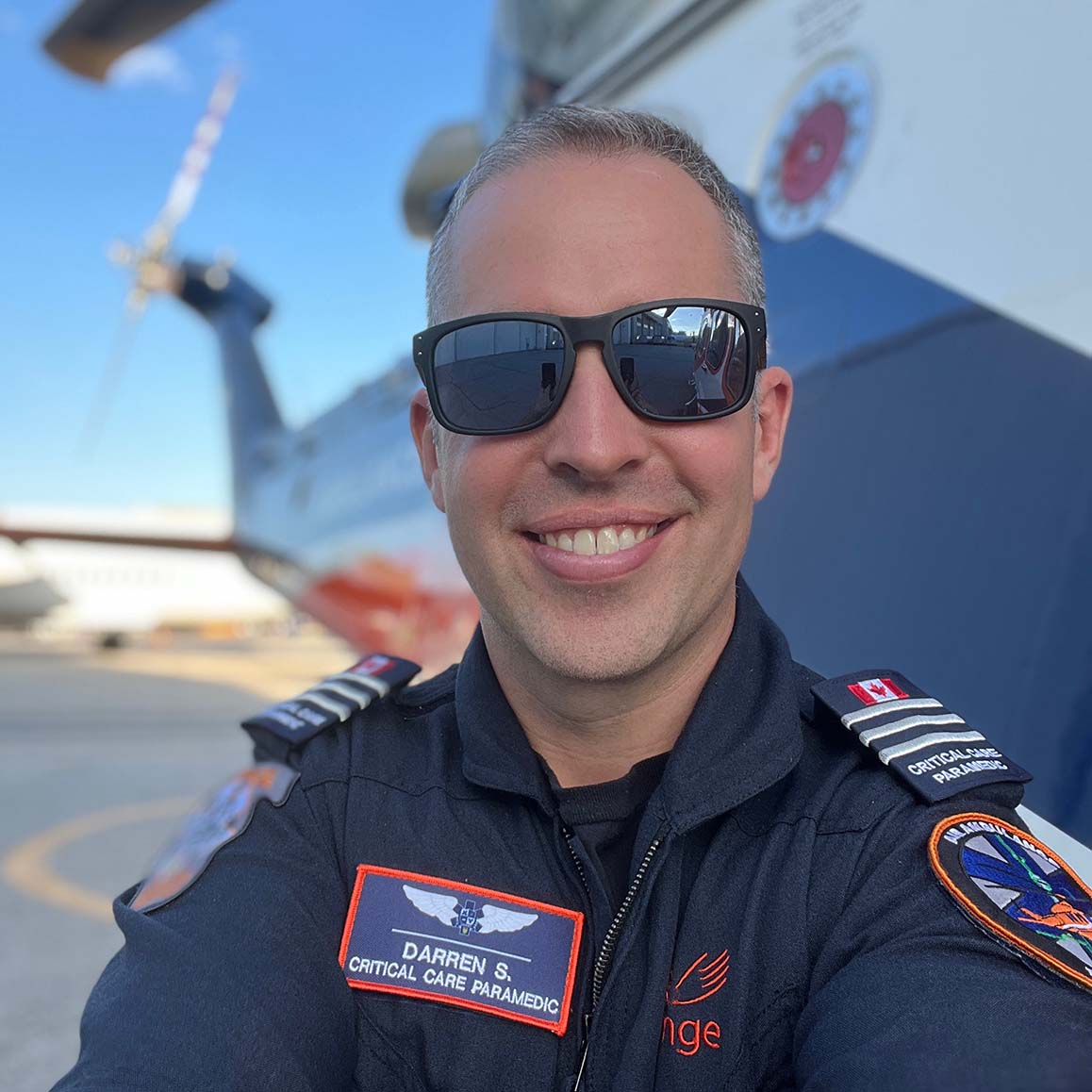
On February 17, 2025, a Delta flight crashed while landing at Pearson International Airport. Paramedics Colin and Darren recount their firsthand response to this rare mass casualty incident—sharing lessons on triage, adaptability, interagency communication, and the importance of debriefing when the unthinkable happens. Humanity, training, and teamwork prevailed.
Sponsored by:



Darren – Critical Care Paramedic
Darren is a proud husband and Dad, who has had wide range of experiences over the past 20+ years. He credits his early time as a paramedic with the Canadian Forces, prior to working in civilian 911, as providing the ideal background for his secondment to the United Nations Mine Action Team, where he deployed to the Middle East. He has recently began a new phase of his career working as a flight paramedic in Ontario. This has allowed him to explore teaching roles in the initial education of both Primary and Critical Care Paramedics. If he is not studying or making coffee, he can likely be found somewhere outside with his family and his dog, Tim.

Colin – Critical Care Paramedic
Colin has 10+ years of paramedic experience in the Ontario system, working ground ambulance, tactical paramedicine and critical care at Ornge. When Colin isn’t at work, you can find him hitting a workout at his local CrossFit gym or adventuring in the outdoors: camping, canoeing and hitting the slopes at the ski resort.
In this gripping episode of Critical Levels, host Zach Cantor sits down with Ornge Critical Care paramedics Colin and Darren to discuss their response to the February 2025 Delta crash at Toronto’s Pearson International Airport. From the initial plume of smoke spotted mid-flight to interagency coordination on the ground, they share how training, adaptability, and teamwork guided decisions under extreme pressure.
Key Topics:
-
First impressions from the air and immediate decision-making
-
Mass casualty triage in an unpredictable environment
-
The challenges of communication across multiple agencies
-
The value of leadership, adaptability, and humility under stress
-
Interdisciplinary and interagency debriefs: lessons learned
-
Mental health, recovery, and supporting paramedics after major incidents
Takeaway:
Mass casualty incidents test every part of the emergency response system. Preparation, communication, and collaboration—not just within one service, but across all responders—make the difference.





Recent Comments